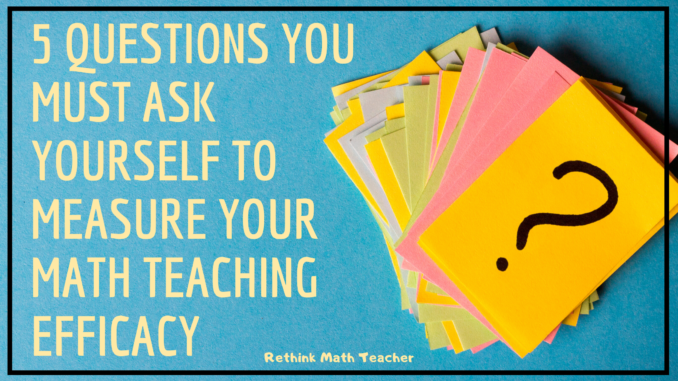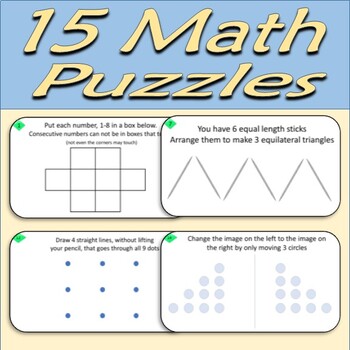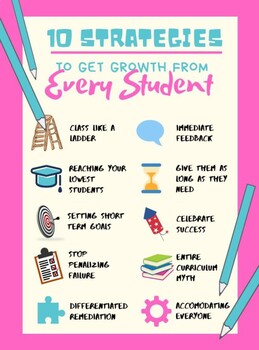
I want you to think of a skill that you’re good at that’s not taught in the traditional classroom; like ballet, basketball, golf, doodling, public speaking, sewing, etc.
Now imagine you were teaching it to a young person. How would you teach it? (Think about the answer before moving on).
What it Would Look Like
Let’s pretend the skill you chose is playing the piano. My assumption is that if you were teaching a young person, you would start with the basics, like finger positions. You would model it for the young person, and then have them try. As they attempted the skill you would provide immediate feedback to help them gain quicker understanding and learn from their mistakes.
Once the child had shown proficiency, you would then move them to the next skill. (I don’t play the piano, so this may be where my illustration breaks down, but I’m guessing that you would teach them a chord or a simple rhythmic pattern). Again, providing instruction, correcting mistakes, and giving the appropriate amount of time for them to master the concept before again progressing them.
You would not begin by trying to teach them to play Beethoven before they first understood finger positions and chords.
Another Example
If you have children, think about how you taught them to read. You showed them the letter and helped them make the sound. You did this repeatedly until they knew that the A says “ah.” (anyone else singing the song right now?)
Then, slowly, you introduced more letters, helping them learn the letter sounds until they were ready to move onto blends and sight words.
My guess is that if your child still didn’t know the letter sounds, you did not start trying to teach them to sound out words.
Now Think About Your Math Class
Is this what instruction looks like in your classroom?
Do you model a skill, and then provide practice with immediate feedback, over and over again until the students have mastered the concept? And then only moved them to the next, more difficult, skill once they had grasped the previous one?
I Bet it’s Not What You Think
Most teachers would say yes to the above question. “Of course I teach my students one skill at a time and give them lots of practice problems. Yes, I absolutely provide immediate feedback. Of course I only move them on to the next skill after they mastered the first. I don’t even need to keep reading, I’m already the best!”
Several years ago if you had asked me those questions, I would have said yes as well. To all of them. Without a doubt! And I would have also added that I’m the best too!
However, upon closer inspection, I would have realized that I wasn’t fulfilling these basic educational needs in my classroom, and I bet most of my readers aren’t either.
Care for some Introspection?
Ask yourself these questions and read into the meat of the argument.
1 – Are you Giving Immediate Feedback
When we learn a new skill, immediate feedback is necessary. This way, students can gain confidence as they get the correct answer, or learn from their mistakes – allowing them to wrestle with the material and gain greater insight as they understand WHY their answer was wrong.
After a student answers a question, how long is it until they get the answer?
Sure, the few questions you assign to the whole class might come with immediate feedback (for the students who completed the assigned work instead of waiting for you to give them the answer). But what about the questions after that?
Most math teachers show the class how to do a problem and then do a few examples on the board. They then assign a few questions to the class which they then model how to complete afterwards. They then assign a handful of problems (10-20) which is “homework” but the teacher gives the class the rest of the period to complete, otherwise, it’s homework. She then circulates, providing assistance as she can.
How is this immediate feedback?
Immediate feedback may have been provided on the few problems that the teacher went over in class, but what about the rest? It’s illogical to think that after a few modeled questions and two practice problems all of the students have grasped the concept. They need guided practice with feedback so they know if they’re doing the work right.
Most people learn a new skill after 20-30 practice repetitions, assuming those repetitions were done right. How does the student know they’re doing it right without immediate feedback?
Many teachers say, “We go over it the first thing in our next class.”
This is EXTREMELY SHORT SIGHTED.
First, if the student did all of the practice problems incorrectly, they were of no value. In the same way if I go and bang on the piano keys for thirty minutes a day I will not learn how to play the piano. The practice must be done correctly.
Second, think of everything that the student has done between your last class, when you assigned the work, and this class, when you are going over it. The student has been to all of their other classes, learning all sorts of new things in each one, they may have had sports or dance or some other extracurricular activity, also requiring them to learn new skills and memorize procedures. Then they went home and spent time with their friends or family (or had to cook meals, clean, take care of siblings, etc.)
By the time they have returned to your class it is not very likely that they remember what was previously done.
How can you give instant feedback on 20-30 practice problems?

2 – Are you giving your students enough practice problems to learn the material
As mentioned above, it takes the average student 20-30 practice problems, with immediate feedback, to learn a new skill. Are you providing that to your students?
Are you truly giving them 20-30 practice problems, with immediate feedback, before you move on to the next skill? Are you giving it to them before you give them something that will be graded for accuracy? Are they being given these proactive problems in an environment where they are free to make mistakes without being penalized for them, so they can learn from them? Are the errors being caught immediately – after they finish the problem, before they begin the next one?
It’s not enough to assign 30 problems as homework. Many students won’t do the homework and many more will cheat. And those that do the homework, are they receiving instant feedback – if not, the practice problems have little to no value.
Beyond that, what about your below average math students? Those who need more practice then the rest of the class to learn the skill. Are you giving them enough practice to master the material, or are you dragging them from one concept to the next, before they’re ready, because you have to keep them on the pacing guide.
3 – Are you only moving students on when they’re ready
If a child doesn’t know her letter sounds, how will she read words?
In the same way, if he can’t add integers, why would you try to teach him how to subtract them? If he can’t graph points, why would you expect him to graph a linear equation? If he doesn’t know his times tables, how can he perform long division?
But this is how instruction is delivered in most classrooms. We model the instruction, we give some practice, and then everyone moves on to the next skill regardless of whether or not you mastered the first. And since much of math builds upon itself (like in the examples above) is it any wonder that certain students are struggling?
Are you moving students on to the next, more difficult math concept, before they’ve demonstrated mastery of the first?
How did they demonstrate mastery? Do you have any data to support your theory that they’re ready?
What are you doing for the students who aren’t ready to move on?
What are you doing for the student who didn’t master a concept they were supposed to learn in a previous math class, which is preventing him from doing the work in your class? Are you remediating him? Or are you pushing him along to do a math concept he’s not ready for?
4 – Do you Expect Mastery?
Here’s the dirty little secret about education: “We penalize failure, and we don’t expect mastery!”
Most teachers would scoff at this notion. I know I did when I was first accused of it. But dig a little deeper, and you will see that it’s true.
Do you expect your students to master what you teach them?
If your answer is yes, let me ask you this. What happens when you finish a unit, or give an assessment, and you have students who didn’t master it? Do they get progressed on to the next skill? If so, I would contend that you didn’t truly expect them to master it. After all, they didn’t master it and you’re moving them on instead of keeping them there until they do.
If we expect mastery, we would not progress our students past a skill they had not mastered. Instead, we would remediate and provide reteach and more practice until they had mastered it.
5 – Are your Students Free to Fail
It’s no secret, that failure is a necessary component to learning. We all fell as we learned to walk.
Mistakes are great teachers.
Yet, in school, mistakes are bad. We loose points and get labeled with low letters.
As a result, students are afraid to wrestle with a concept. They don’t experiment, or try new things. They try to memorize without understanding why something is.
Most teachers would tell me that they encourage their students to make mistakes. But I would argue that you think you do, but the message is not getting across to your students.
Here’s an easy way to check. You assign your students some practice problems. If they get them wrong, does their grade go down? If so, why? Aren’t we supposed to make mistakes when we practice something new? Isn’t that how we learn?
When I assign practice problems my students have the answers with them (unless it’s online, in which case the answer is shown after they hit enter). Now, not only do they get immediate feedback, but they know that there’s no penalty for making a mistake. So they can wrestle with the material and try to understand it without having to worry about their grade being reduced.
What about if your students fail a test? What then?
Obviously, this shows that they didn’t truly learn the material, but now what? Do you move them on to the next unit (not truly expecting mastery like we said above) or do you remediate them? When you remediate them, are they given the opportunity to correct the low grade? Or does it stay there forever?
If you don’t give them the opportunity to recover the low grade, why not? Is it that the student’s fault that they were given the assessment before they had mastered the concept?
What’s more important, that they learned the concept or that they learned it within your time frame? And if you say that the most important thing is that they learned the skill, then why keep the bad grade? If you say that the bad grade stays because they were supposed to learn it within a certain time frame, then I ask my question again: what’s more important? Them learning the skill, or them learning the skill inside of your timeline?

The Traditional Teaching Method Has Failed
In the traditional model, we teach all the students the same thing, with the same amount of practice, and then move them on to the next skill even though a percentage of the class is not ready to move on (and a percentage of the class was held back, forced to remain working on a skill they had long ago mastered).
The traditional teaching model gives a set number of practice problems to the whole class, with no immediate feedback. It penalizes failure and does not expect mastery. It moves students on before they’re ready and fails to diagnose gaps in the student’s learning repertoire that is holding him/her back.
We are all guilty of it. It’s how education has been done for decades. A one size fits all assembly line of instruction and practice, failing to provide the most essential tools needed for success: immediate feedback, the freedom to fail, as many practice repetitions as needed.
What to Do
You can reach all of your students, but some things have to change.
You MUST provide immediate feedback. Students need to know that they’re doing the work correctly or incorrectly so they can learn from their work and progress.
You MUST give students sufficient practice. Sufficient practice is not however many practice problems you assign, it’s how many the student needs to master the concept. It’s different for everyone. You HAVE to give different amounts of practice to each student as they need it if you want to reach them all.
You MUST remediate deficient skills. If a student doesn’t know his times tables, he can’t do long division. So instead of banging your head against a wall, showing him how to do long division over and over again, remediate the necessary prerequisite skill – teach him his times tables. The same is true for most math concepts. There are necessary prerequisite skills that are hindering your students from doing their work. If you want them to find success, you must remediate.
You MUST create a place where students are free to make mistakes and learn from them.
Do these things, and you will become an uncommon teacher. And that’s a good thing!










